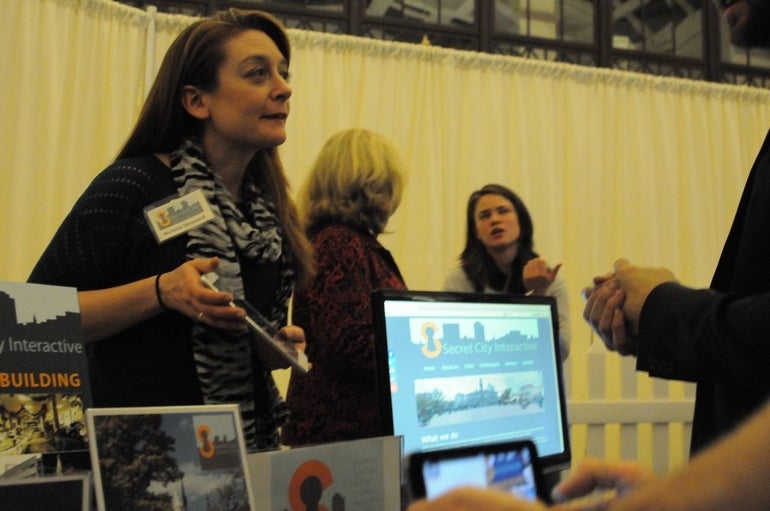Seven groups pitched transportation solutions to Worcester investors and collaborators Thursday night in the culmination of a National Science Foundation program shared with the cities of Chicago and San Diego.
The proposals ranged from Secret City Interactive, a smartphone and tablet application that scans the environment of Worcester to display historical and event information, to Wires over the World, which proposes a skyline transportation system working its way across Worcester for a fraction of the price of a subway.
While the programs were developed as part of a grant-funded program, the product of the groups’ 10 months of work is all theirs, Joyce Kressler, the program’s Worcester director, said.
“It would be really ideal for businesses to partner (with the groups),” she said. “Some of these could be licensed … The teams own the intellectual property, so it is really what they want to do.”
The groups operated under the Incubator for Innovation, a program operated in Chicago and San Diego as well as Worcester by The Art of Science Learning, a NSF-funded initiative. While Worcester focused on transportation through the joint $2.6 million grant, Chicago and San Diego tackled the issues of urban nutrition and water resources, respectively.
The Worcester program brought together a cross-section of the community – including high school students, teachers, professionals from various fields – to workshop their ideas. Their goal was to create tangible solutions to transportation issues that could be put into place in the community, and in some cases scaled up to expand nationally.
Each program adopted different approaches to the topic of transportation in Worcester.
The Smart Transit for Healthcare application allows patients at the Family Health Center to choose their appointments in coordination with the WRTA bus schedule. This program, which has been in beta testing, can transform a two-and-a-half hour trip by bus to the doctor to 37 minutes by lining up the appointment with a time of day that provides the quickest bus trip.
The PedSim computer program predicts pedestrian movement, allowing cities to determine which walkways should be concentrated on for repair or improvement.
Tasks for Transit would translate volunteer hours at area nonprofits into bus passes.
A group also created a middle-school science curriculum to teach transportation-related subjects called STEM Unplugged.
Sprezza would rework bus service to a more demand-driven system.
“The call to the community here was for the community to adopt these right now,” said Kressler. “Whether it’s business plans or linking them to tech support, in other words, trying to help accelerate the work they are doing.”

